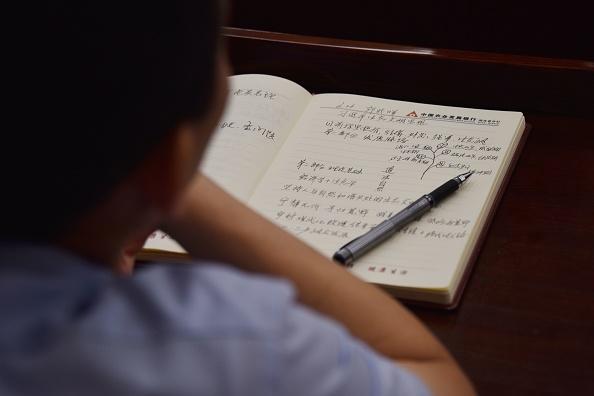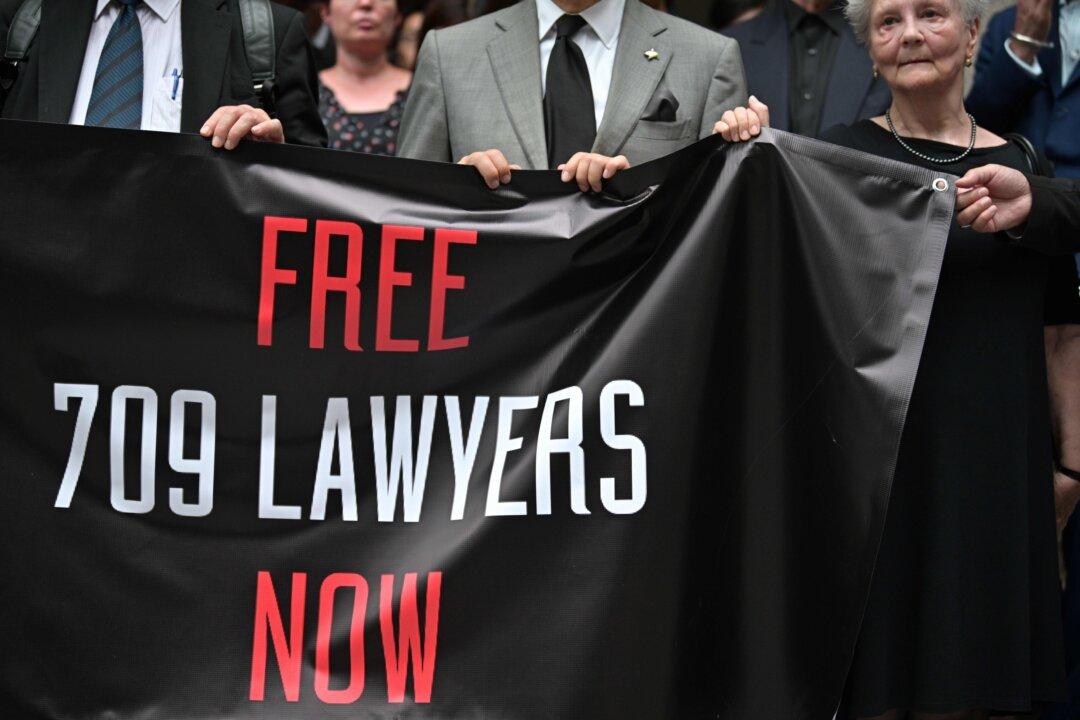Since the 709 Crackdown in 2015—when Chinese authorities arrested hundreds of human rights lawyers, dissidents, and petitioners—Beijing has intensified its communist brainwashing among law firms throughout China.
Chinese lawyers revealed to the Chinese language edition of The Epoch Times that ideological indoctrination has always existed, but it used to only apply to Communist Party members.
‘Xi Jinping Thought’
Officially known as “Xi Jinping Thought on Socialism with Chinese Characteristics for a New Era,” the ideological doctrine is based on Xi’s directives, speeches, and writings, which shape his “China dream.”Xiaolan (pseudonym), a Beijing-based lawyer, said the CCP has recently stepped up political indoctrination across the country and demanded legal professionals study Xi’s writings.
Chinese lawyers were believed to enjoy a higher degree of freedom than most people in China because the national treasury does not pay their salaries, Xiaolan said, “but the current situation doesn’t look good.”
On May 22, in a forum introducing the first two volumes of “Selected Works of Xi Jinping,” Cai Qi, the first secretary of the Secretariat of the CCP, touted that the books should be studied in great depth, “to the brain, the heart, and the soul,” according to state media broadcaster CCTV.

Wu Shaoping, who used to practice law in Shanghai, said that since the 709 Crackdown, Beijing enhanced its ideological work among law firms by demanding their non-Party member lawyers to participate in political theory studies and activities.
Yang Yuan (pseudonym), a lawyer in Henan Province, told The Epoch Times that Chinese lawyers were obliged to receive political “reeducation” after the 709 incident.
According to Yang, under the order of the local justice department in Zhengzhou City, lawyers had to study “Xi Jinping: The Governance of China” and the CCP’s history.
The study involved the usage of the “Study Xi, Strong Country” app provided by Beijing. It was released by the Publicity Department of the CCP in January 2019, aiming to indoctrinate the populace about Xi’s leadership. It contains state media news reports of Xi’s visits to various provinces, a function where messages disappear after being read, and weekly quizzes about ”Xi Jinping Thought” so that users can earn points.
Some local bar associations conduct their annual assessment of lawyers’ qualifications based on the viewing record and points on the app.
Yang said that since the law firms were required to set up a CCP branch, they have lost their independence, and lawyers can’t take cases voluntarily. “The Party branch decides the firm’s business because each case needs approval,” Yang said.
Abuse
Ding Jiaxi, one of the lawyers in the 709 incident, received a 12-year sentence in April.Ding, 55, is one of the prominent figures in the Chinese New Citizens Movement, which seeks the peaceful transition of China toward constitutionalism and calls for greater transparency regarding the wealth of officials.
His wife, Luo Shengchun, who now lives in the United States, revealed how the brainwashing tactics were carried out.
For example, he was deprived of sleep and was forced to watch a 12-hour TV program, blasting at high volume, on Xi’s political talks for seven days, Luo told the Chinese language edition of The Epoch Times.




